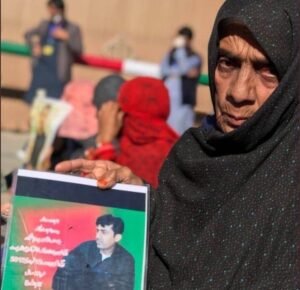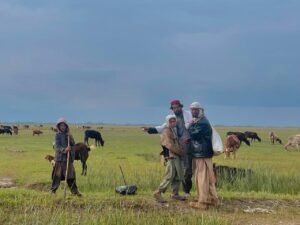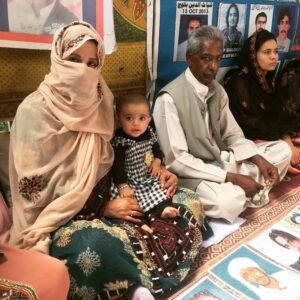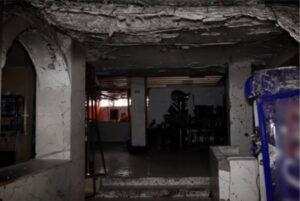Faith Under Fire: The Rising Toll of Blasphemy Allegations
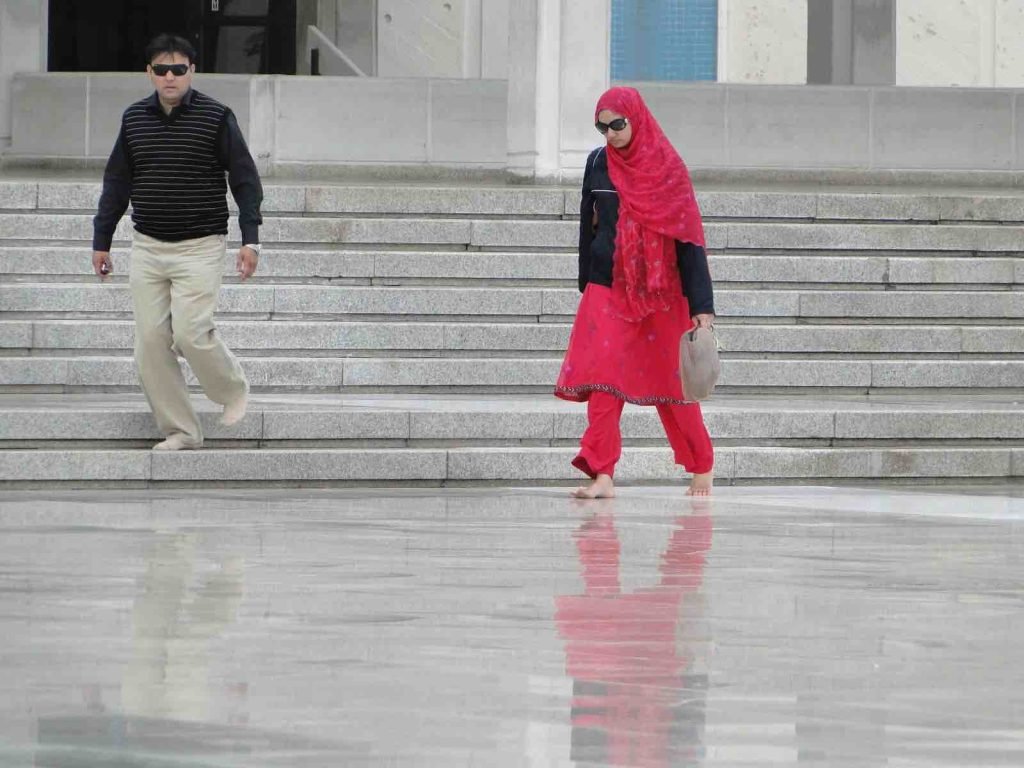
Photo location: Faisal Mosque, Islamabad, Pakistan @Ali Ahmad
By Fatima Chaudhary
In its recently released State of Human Rights in 2024 report, the Human Rights Commission of Pakistan (HRCP) revealed a staggering rise in blasphemy-related imprisonments, with over 1,200 individuals currently behind bars on blasphemy charges in 2025. Disturbingly, many of these cases stemmed from digital entrapment, where extremist groups exploited social media platforms to target individuals, leading to arrests and prosecutions under Pakistan’s stringent blasphemy laws. The findings highlight a deepening crisis, where religious intolerance, surveillance, and online manipulation are fueling systematic persecution under the guise of legal enforcement.
Blasphemy laws in Pakistan continue to be weaponized for social control, persecution, and suppression of dissent, with 2024 and 2025 witnessing a surge in blasphemy-related accusations and violence. Blasphemy—or Gustakhi, as it is known in Urdu—is deeply woven into Pakistan’s religious and social fabric, shaping both public discourse and legal frameworks. The country’s blasphemy laws, officially categorized as “offences relating to religion”, are among the strictest in the world, prescribing severe punishments for acts deemed disrespectful to Islamic beliefs.
Researchers studying blasphemy-related violence in Pakistan, in collaboration with Engage Pakistan, a nonprofit advocacy group focused on blasphemy law reform, uncovered a disturbing pattern: blasphemy laws are not just legal instruments, but tools for fear, persecution, and social control. Their findings reveal that violence stemming from blasphemy accusations often bypasses the formal justice system, escalating into mob attacks, vigilantism, and community-driven oppression—consequences that rarely make it to the courtroom.
Punishing Thought and Speech
Through an extensive documentation effort, researchers have tracked hate speech, inflammatory posters, and public rhetoric across the country, illustrating how blasphemy accusations are strategically wielded to intimidate individuals, suppress dissent, and marginalize vulnerable groups. A record 344 new blasphemy cases were reported in 2024, marking a significant increase in the misuse of these laws. Punjab Province recorded the highest number of blasphemy accusations (62%), followed by Sindh (30%), Khyber Pakhtunkhwa (5%), Azad Jammu and Kashmir (2%), and Gilgit-Baltistan (1%).
Mob violence remained alarmingly high, with 10 extrajudicial killings of individuals accused of blasphemy in 2024 alone. Victims were lynched in Lahore, Rawalpindi, Sargodha, Gujrat, Karachi, Umerkot, Swat, and Quetta.
The fear instilled by the constant threat of accusation has shaped Pakistan’s social landscape, particularly for religious minorities, whose mere existence is often under scrutiny in blasphemy-related narratives.
Pakistan’s blasphemy laws, embedded within the Pakistan Penal Code (PPC) under Sections 295 to 298, serve as one of the most stringent legal frameworks governing religious expression. These provisions criminalize a broad spectrum of actions deemed offensive to Islamic teachings and beliefs, often carrying severe punishments. Section 295-B mandates life imprisonment for anyone convicted of defiling the Quran, while Section 295-C, the most infamous of these laws, prescribes the death penalty or life imprisonment for blasphemy against the Prophet Muhammad. Additionally, Section 295-A imposes up to 10 years of imprisonment for deliberate and malicious acts intended to outrage religious sentiments, further reinforcing the legal boundaries around religious discourse. Section 298, however, disproportionately targets minority communities, particularly Ahmadis, explicitly barring them from identifying as Muslims or using Islamic terminology, deepening their legal and social marginalization. These laws, often criticized for their vague definitions and broad applicability, have contributed to rising religious intolerance, emboldening vigilante justice and creating an atmosphere where accusations, whether genuine or fabricated, can lead to severe consequences, including violence and persecution.
The vague and broadly defined concepts in Pakistan’s blasphemy laws present grave challenges, not only for legal interpretation but also for freedom of expression and public safety. The ambiguity surrounding what constitutes blasphemy has created a climate of fear, where citizens hesitate to engage in any discourse that could be perceived as disrespectful to religious sentiments—even if their intent is academic, journalistic, or reformist.
Deadly Accusations
One of the most disturbing outcomes of this legal vagueness is the rise of mob violence and vigilante justice. The perception that blasphemy is an absolute crime—often viewed as worse than murder or treason—has emboldened radical individuals and groups to take law enforcement into their own hands. Without clear judicial safeguards, false accusations have frequently led to lynchings, arson, and extrajudicial killings, often based on hearsay or personal vendettas rather than credible evidence. Even mere allegations, regardless of their validity, can turn deadly, creating a high-risk environment for anyone accused.
Pakistan has witnessed numerous high-profile blasphemy cases, often culminating in mob violence, extrajudicial killings, and widespread fear. Among the most infamous was the case of Aasia Bibi, a Christian woman accused of blasphemy in 2009, sentenced to death, and later acquitted by the Supreme Court in 2018, triggering violent protests by extremist groups. The assassination of Shahbaz Bhatti, Pakistan’s Minister for Minorities Affairs, remains one of the most shocking blasphemy-related killings. Bhatti, a vocal critic of blasphemy laws, was gunned down in 2011, reinforcing the deadly consequences of advocating for reform.
Another tragic case was the lynching of Mashal Khan in 2017, a university student falsely accused of blasphemy, who was brutally beaten and shot by a mob on campus.
More recently, 2024 and 2025 have seen a surge in mob justice, with several individuals killed over blasphemy allegations. In February 2024, a man in Punjab was dragged from a police station and lynched by an enraged crowd after being accused of desecrating religious texts. Similarly, in April 2025, a mob in Sindh set fire to a house, killing its occupants over alleged blasphemy, underscoring the escalating violence and unchecked vigilantism surrounding these laws.
The Ahmadiyya community, long persecuted under Pakistan’s blasphemy laws, has faced particularly brutal attacks. In March 2025, an Ahmadi Mosque in Lahore was stormed by extremists, leading to multiple deaths and arrests.
Policing Blasphemy
The reluctance of law enforcement agencies to intervene in blasphemy-related incidents has only exacerbated the crisis. Police officers often face immense pressure from local communities, clerics, and political factions, making it almost impossible to maintain public order when blasphemy accusations surface. In many cases, authorities either fail to protect accused individuals, or worse, they comply with mob demands rather than enforcing legal due process. This systemic failure to uphold the rule of law has created a parallel justice system, where public sentiment, rather than legal evidence
Human rights organizations and international bodies have repeatedly criticized Pakistan’s blasphemy laws, citing their misuse, lack of due process, and violation of religious freedoms. The United Nations Human Rights Committee has urged Pakistan to repeal or amend these laws to align with international human rights standards. However, domestic opposition from religious groups and political factions has made reform politically sensitive and dangerous.
Despite growing global pressure, Pakistan’s blasphemy laws remain firmly entrenched, with little political will for reform. The laws continue to be used as tools of suppression, disproportionately affecting religious minorities, journalists, and activists.
Fatima Chaudhary is a lecturer at a private university in Punjab province.
Note: The contents of the article are of sole responsibility of the author. Afghan Diaspora Network will not be responsible for any inaccurate or incorrect statement in the articles.



